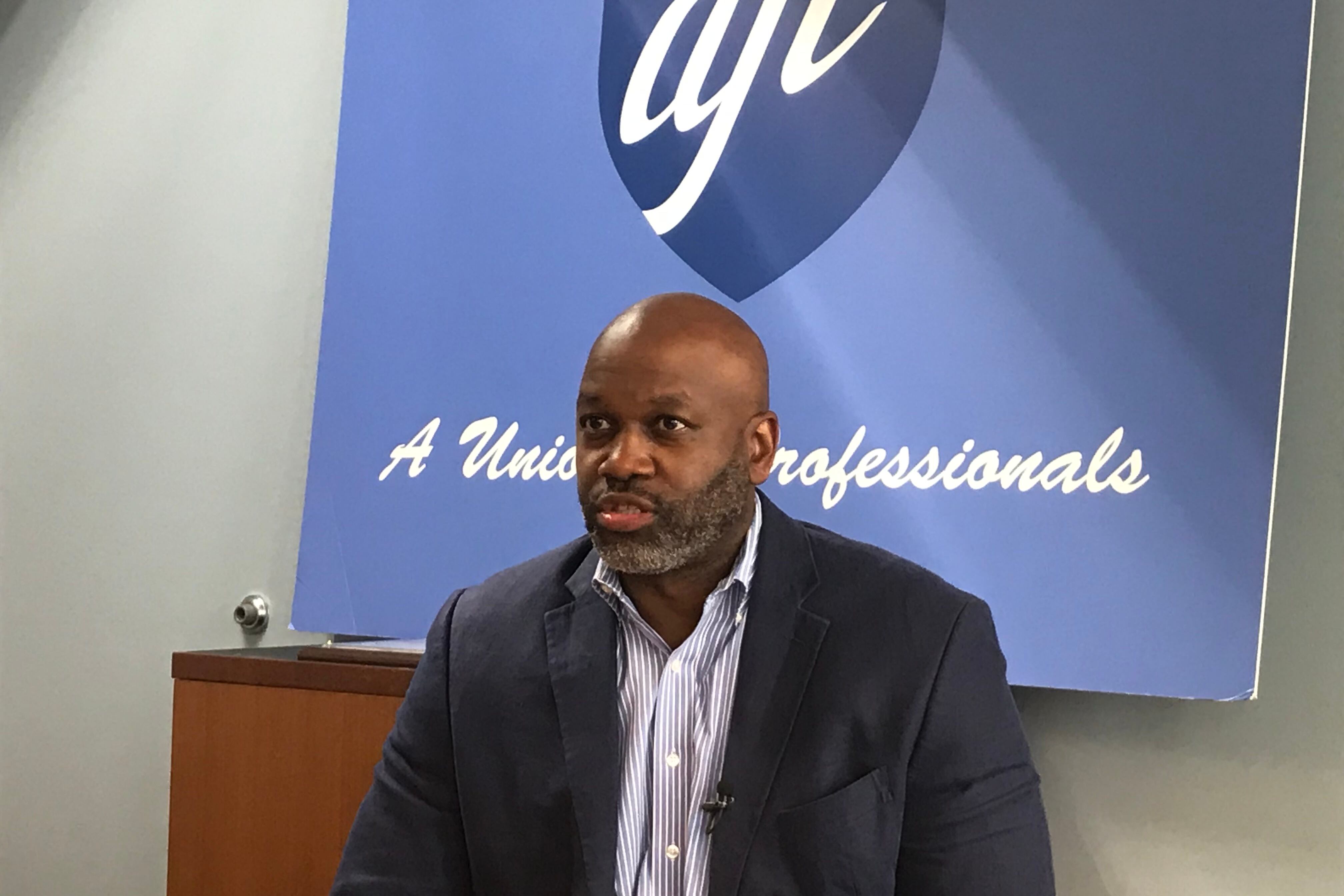Citing safety concerns over a planned return to in-person learning amid the COVID-19 pandemic, the Detroit teacher’s union has scheduled a strike vote for next week, setting up a potential battle with the school district with less than a month before schools are to reopen.
If members of the Detroit Federation of Teachers vote to authorize a strike Wednesday, it would be the first since a 16-day strike in 2006.
“What it’s about is the members of this union saying that it is unsafe to return to school buildings face-to-face to educate children, with the rising numbers of COVID around the state and no reasonable assurance that members and children will be safe with in-person education from the school district,” said DFT president Terrence Martin, whose union represents about 4,000 district employees. “Too many questions, not enough answers.”
Martin said members are ready and willing to educate children through online platforms. District officials did not comment on the strike vote.
District superintendent Nikolai Vitti has said that the district’s reopening plan is consistent with the federal and state guidelines for safely reopening schools, and that the plan would be adjusted if guidance changes. Vitti has also said the district is willing to consider assigning teachers who are in the high risk category for COVID to online learning and negotiating hazard pay for teachers who work in school buildings.
Right now, the district is monitoring closely any uptick in positive coronavirus cases in Detroit.
“The data that we’re looking at more than anything else is the infection rate in the city,” Vitti said Thursday during a virtual town hall hosted by WDIV.
Vitti cited the national American Federation of Teachers guidelines that schools should not reopen if the infection rate is 5% or higher. If Detroit’s rate were to meet that threshold, Vitti said he would call for the closure of schools.
Detroit for months was the hardest hit by the coronavirus in Michigan. But Dr. Joneigh Khaldun, the state’s chief medical executive, said during a press conference Friday that the city has seen marked improvement. The rate of positive COVID-19 test results in the city is 2.6%, while the rate is 4.1% for the entire Detroit region, which includes nine counties in southeast Michigan.
The DFT, along with other district unions that represent paraprofessionals and office employees, recently sent a list of demands to district officials. Those demands included a virtual start to the school year, the ability for teachers to opt in for in-person work, and hazard pay for teachers working in school buildings.
“Our demands continue to go ignored and so it is now time for us to bring the question to our membership to make a difficult but necessary decision for what is in the best interest of our students and members,” according to the statement.
During a press conference last month, Martin said teachers may walk off the job if they felt working conditions were unsafe.
The potential strike illustrates the key role teachers unions are playing in school reopening decisions. Rumblings of strikes in other states are already happening, and national teachers unions are supporting the tactic.
Michigan law prohibits teachers strikes, however, raising legal questions about how the union might seek to justify a walkout over health and other concerns.
Martin said he believes the union has a solid legal argument to launch a strike.
“Health and safety changes things. This is not a traditional strike in the sense of what we’re accustomed to. This is not a work stoppage,” he said. The distinction, he said, is that union members are willing to educate children this fall, but remotely.
In 2006, DFT members went on a 16-day strike after rejecting proposed pay cuts from district leaders. That year, the district saw a substantial decline in enrollment, as some parents left the district for charter schools or surrounding districts. In 2016, many teachers staged “sickouts” to protest the deteriorating building conditions.
After the sickouts, the Michigan legislature enacted changes to the strike law that allowed for penalties for those who strike.
According to the law, the state may impose fines against the public school employer and employees would have to pay a fine equal to a day’s earnings for each full or partial day they participate in a strike.
Last week, the Michigan Education Association, which represents most of the teachers in the state (though not the Detroit union), said it would support any of its local unions that decide it’s not safe to return to school buildings because of safety issues.
“We will defend them publicly and if necessary through legal action,” said David Crim, spokesman for the MEA, which has local unions in more than 500 school districts.
The Detroit school board approved the district’s reopening plan last month, despite anger and criticism from parents and educators.
Fears over working during the pandemic were already heightened this past summer. Activist group By Any Means Necessary filed a lawsuit against the district in July, which aimed to halt the district’s in-person summer school program. The plaintiffs included district teachers and other school staff. A federal judge then ordered the district to test all in-person summer school students as part of a temporary restraining order. Three students tested positive.
The district is one of many Michigan school districts offering in-person and online learning options. Many districts, including Lansing, Ann Arbor, and Grand Rapids, will be starting the school year virtually.
Gov. Gretchen Whitmer, during a press conference Friday morning, briefly addressed the potential for teacher strikes, saying local districts must include teacher voices as they make decisions about reopening.
“They’re supposed to be working with their teachers unions,” said Whitmer, who didn’t specifically mention the Detroit district. “These are subjects of collective bargaining. They’ve got to uphold those agreements.”







